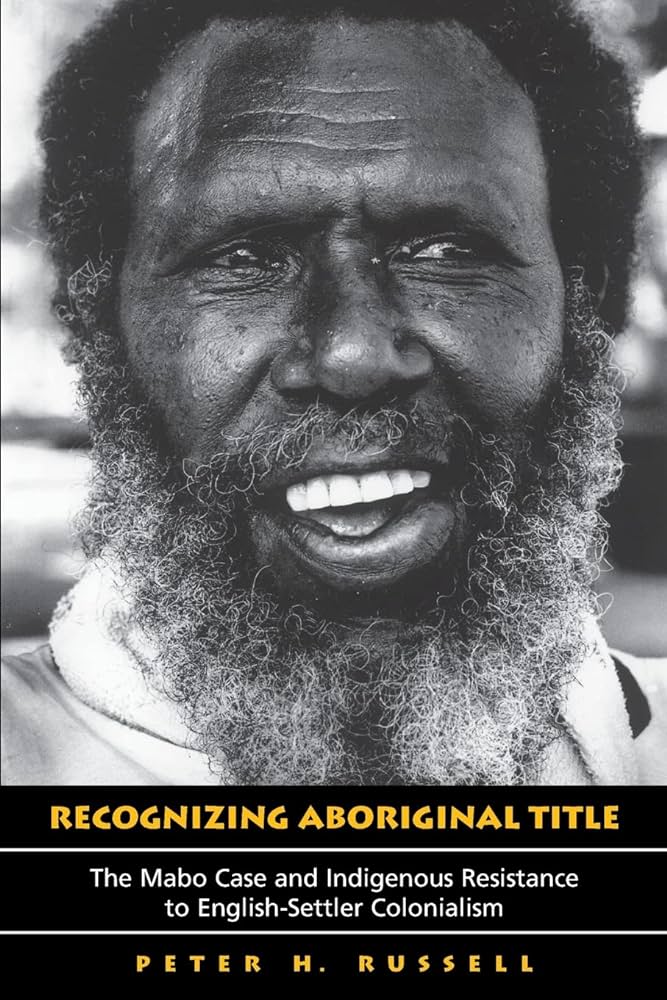Recognizing Aboriginal Title: The Mabo case and Indigenous resistance to English settler colonialism
University of Toronto Press, $130 hb, 470 pp
Legal magic
Peter Russell, a distinguished Canadian student of the politics of the judiciary, asks if ‘my people’ – the English settlers of Australia, Canada, New Zealand, and the US – can live honourably. Is their authority defensible against indigenous people’s charge that ‘my people’ bullied them out of their sovereignty? Because European colonial power has been shadowed by a sense of moral unease, interpreting the colonists’ laws matters. ‘There is a lot of leeway in the law,’ Russell observes, ‘and no more so than in legal cultures based on the common law.’ The High Court of Australia’s decisions in Mabo (1992) and Wik (1996) – making native title recognisable to the common law – seemed to Russell to confirm judges’ potential to be the conscience of liberal constitutionalism.
While Russell’s phrase ‘legal magic’ usually conveys his scepticism about a statute or a judgment, ‘legal magic’ also reflects his sense of the law’s plasticity. The law is ever in need of interpretation. As authorised interpreters, judges can ensure that law serves the national community. To reconcile ‘might’ with ‘right’ sometimes requires judges to tell legislators to change their laws and administrators to change what they do. In judicial discretion, Russell sees one of the paths of his people’s redemption.
Continue reading for only $10 per month. Subscribe and gain full access to Australian Book Review. Already a subscriber? Sign in. If you need assistance, feel free to contact us.












Leave a comment
If you are an ABR subscriber, you will need to sign in to post a comment.
If you have forgotten your sign in details, or if you receive an error message when trying to submit your comment, please email your comment (and the name of the article to which it relates) to ABR Comments. We will review your comment and, subject to approval, we will post it under your name.
Please note that all comments must be approved by ABR and comply with our Terms & Conditions.